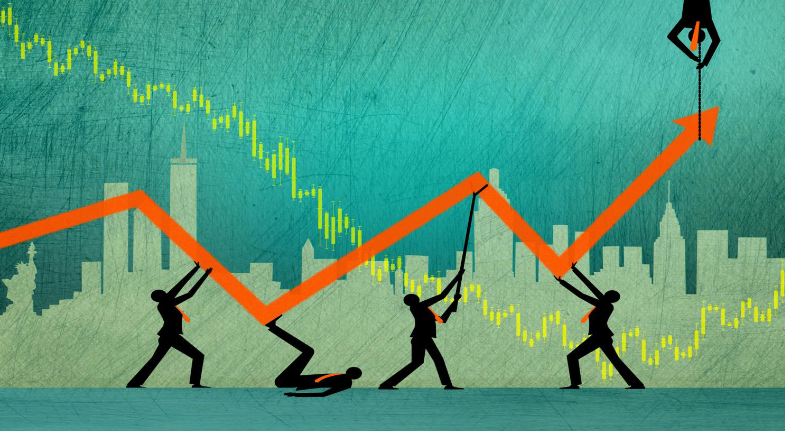

Author: John Romano
It would be hard to turn on any news outlet over the past few weeks without hearing about the Reddit fueled retail investor vs. hedge fund trading battle. In order to make sense of this phenomenon, we have to first understand what exactly caused the rapidincrease in volatility in several stock names over the past few weeks to break down what this all means. Stocks like GameStop (GME), AMC Entertainment (AMC), Blackberry (BB) and Nokia (NOK) were targeted by retail investors on the online forum Reddit because of a higher than usual short interest. A high short interest indicates that many investors, mostly large institutions, are betting that the stock will decrease in value. The retail frenzy that erupted became a true David vs. Goliath story as small investors flooded into these names driving up the prices. The result of this was a “short squeeze” where investors short the stock need to buy back the shares borrowed to cover margin calls, adding further fuel to the fire. When combined with a “gamma squeeze” in the options market, all trading momentum was forcing these stocks exponentially higher, showing an extreme disconnect with fundamentals. To make matters worse, GameStop had close to a 140% short interest in the stock, meaning there were more shares being shorted than actually outstanding by the company. This indicates a dangerously high degree of leverage that can unravel very quickly putting the short sellers’ entire companies at risk of failure. The trickle-down effects of this were felt elsewhere in the market as well.
The CBOE Volatility Index (VIX) or “fear gauge” rapidly rose to near 40 which may be attributed to the large institutions’ need to liquidate other core positions to raise cash to cover shorts or to other investors thinking this trading frenzy is a warning sign that the stock market may be in a speculative bubble. For the heavily shorted stocks, both sides of the trade eventually reached a standoff: the retail investors working in concert to hold their positions and the hedge funds scrambling to cover shorts or wait out this temporary economic disconnect. What many amateur investors may not understand is that once a critical mass of shorts have been covered, it becomes a race to the bottom and a return to economic reality with everyone buying in at the top at risk of losing almost all of their investment.
A Learning Opportunity
This market anomaly presents an important teaching moment for all of those who are active in the market to define the differences between trading and investing. Traders look to seek out short term market discrepancies in an attempt to profit from these deviations. As we’ve seen in the GameStop saga, this can be very risky and there is always a chance that those late to a particular trade may be the ones left “holding the bag.” If you are a speculative trader at a hedge fund, this strategy may work at times for short term trades as part of reaching the trader’s return objectives. However, as a fiduciary, we have a responsibility to try to not only earn clients a sufficient rate of return, but also manage risk in the process and act in a client’s best interest. This can rarely be served by jumping on the bandwagon of risky trades like what we have seen with GameStop and for these reasons, we adopt a longer-term investment horizon rooted in underlying security fundamentals, the economic cycle, changes in global capital flows and broader secular trends. Investing does not emphasize knee-jerk reactions to headline news or other forms of media that may move the market in the very short term. Investing involves creating and adhering to a broader strategy in order to grow assets for particular goals, life events or other needs. Keeping risk at a level consistent with meeting these goals is the part of investing that many return-oriented asset managers often neglect, but is at the core of our strategy at AJF Capital Management.
Ramifications
Any anomaly that shakes up the market the way GameStop did will leave some kind of impact on the future of trading and investing alike. The emergence of the retail investor is definitely a positive thing that could promote curiosity of the markets as well as increased saving for the next generation at a younger age. However, the question will remain who has the responsibility to educate or at least provide education for this new generation of young traders. The same online brokerages that empowered the retail investor may be the ones responsible for providing further disclosures and educational tools. The last thing anyone would want is a younger generation that is discouraged to participate in the financial markets because of speculative trades that went awry. Speculation of the effects on the institutional side are unclear, but possibilities such as the disclosure of naked short positions or regulations that restrict short interest to a smaller percentage of a company’s float could be considered. The higher arching theme that we should all take away from this in hindsight is the immense power that money can have when a group of like-minded individuals perpetuate a particular cause. With the emergence and popularity of ESG and Socially Responsible investment strategies, it will be interesting to see how these investment styles deploy capital to similar causes and ideologies that can form new secular trends going forward.